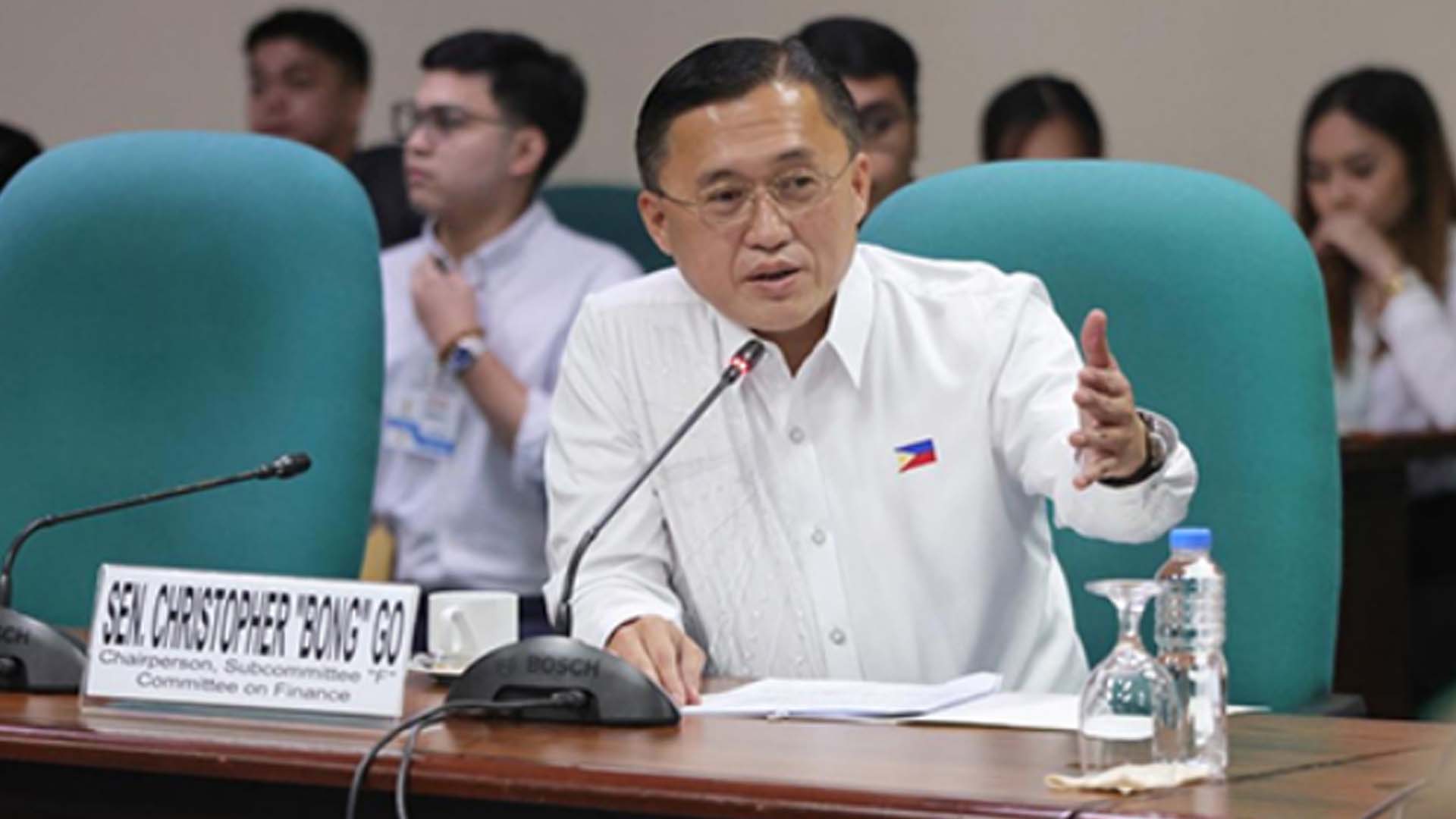During a public hearing on the Department of Social Welfare and Development (DSWD) budget, Senator Christopher “Bong Go” expressed his strong support for the department’s financial allocation and took the opportunity to seek crucial updates on two major welfare programs: the Balik Probinsya, Bagong Pag-asa (BP2) program and the Pantawid Pamilyang Pilipino Program (4Ps).
Go acknowledged the difficult situation many provincial migrants face in Metro Manila, especially during the pandemic.
“Alam n’yo naman po nitong panahon po ng pandemya ay marami pong mga kababayan natin na mga probinsyano na natutulog na lang po diyan sa sidewalk dahil wala silang kamag-anak, wala silang tirahan, gusto nilang bumalik ng probinsya,” said Go.
Go underscored the significance of the BP2 Program, and said that it was established through an executive order by former president Rodrigo Duterte. The Senate adopted a resolution in 2020, principally sponsored by Sen. Go, urging the executive department to formulate and implement a “Balik Probinsya” program.
DSWD Secretary Rex Gatchalian affirmed the program’s effectiveness and the government’s commitment to continue the program.
“This is a very good program that we inherited, that we planned to keep and, in fact, use all the time. For the record, ang na-serve natin ho for 2023 is 2,426 out of the target na 4,572 families. Ang financial allocation n’ya is P3.5 billion thereabouts, at ang nagamit ho is P1 billion or 29%,” Gatchalian said.
In 2020, Duterte signed Executive Order No. 114 which institutionalized the said program. As one of the main proponents of the BP2 Program, Go has earlier said that promoting employment and livelihood opportunities in the countryside will boost regional development consistent with the long-term goals of the program that is set to be fully implemented after the COVID-19 crisis.
Meanwhile, DSWD plans to expand the program to include other types of interventions for families living in the streets. Gatchalian said, “‘Yung BP2 is something that we want to expand, to include other types of intervention na magagamit sa mga pamilya na nakatira sa lansangan.”
Gatchalian also acknowledged that while local government units have responsibilities, DSWD has launched a mainstay program to assist families and individuals living in the streets. He said when these families return to their provinces, they receive community livelihood grants, which are monitored by the local government units.
Go then inquired if street dwellers and beggars are also included in the program. Gatchalian confirmed their inclusion, saying, “Kasama po because we found out that a lot of them are actually stuck in Metro Manila na gustong umuwi rin, kasama na po sila.”
When asked where these individuals are temporarily housed, Gatchalian explained that the goal is not to keep them in housing facilities but to help them return to their provinces.
Shifting attention to the 4Ps, Go highlighted that former president Duterte enhanced the standard benefits for beneficiaries. While the former president initially considered distributing rice, the decision was ultimately made to offer cash assistance instead.
Gatchalian confirmed that an extra P600 has been added to the benefits under Duterte’s term. He also elaborated that the amount given to beneficiaries depends on the family’s circumstances. The maximum amount ranges from P3500 to P3800, depending on the number of school-aged children in the family.
When Go asked about the number of 4Ps members, Gatchalian pointed out that the number is capped at 4.4 million families due to budget constraints.
“Just to point out, nakasaad po sa GAA (General Appropriations Act) na lagi pong 4.4 million ang numero nila. So, hindi po sila dumadami; hanggang doon lang ang budget allocation. Sana mas lumaki pa dahil maraming waitlisted, pero ang allowed lang sa amin is 4.4 million families,” the Secretary said.
Gatchalian also discussed the conditions under which families “graduate” from the program. Families may leave the program if they reach the seven-year limit, no longer meet the conditions, or fail to attend development sessions.
At the height of the pandemic, Go appealed to the government to provide cash incentives to vaccinated 4Ps members to encourage more of them to get their COVID-19 vaccines instead of making vaccination mandatory. Such incentives will be on top of what 4Ps beneficiaries receive in accordance with the law.





